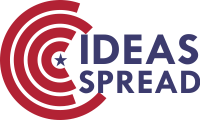Research on the Blended Teaching Model of Ideological and Political Education in the Comprehensive English Course under the CBI Concept
Abstract
Based on the concept of Content-Based Instruction (CBI), this paper explores the integration path of ideological and political education and the blended teaching model in the English major’s Comprehensive English Course. Specifically, by constructing a “trinity” teaching model that combines online and offline learning, coordinates in-class and extracurricular activities, and integrates theory with practice, it verifies its significant enhancement of students’ language proficiency, ideological and political literacy, and learning satisfaction in teaching practice. Thereby, it addresses the dilemma of the “hard integration” and “superficiality” of ideological education in traditional English teaching.
References
Fu, Z., & Ruan, J. P. (2024). A study on ideological and political education in English major core courses based on the CBI theme-based model. Foreign Languages and Translation, 31(02), 82-88. https://doi.org/10.19502/j.cnki.2095-9648.2024.02.015.
Krahnke, K. (1987). Approaches to syllabus design for foreign language teaching. Prentice Hall.
Liu, X. L. (2022). The dilemmas and countermeasures of ideological and political education in colleges during the digital transformation of education. China Educational Technology, (08), 100-105.
Meng, Y. (2022). Design of a blended teaching mode for business English courses based on the CBI concept. Journal of Liaoning Open University (Natural Science) (03), 46-50. https://doi.org/10.19469/j.cnki.1003-3297.2022.03.0046.
Qu, J. L., & Zhou, S. (2020). The design and enlightenment of English “golden courses” assisted by “Internet+” multimodal technology. Journal of Xi'an International Studies University, 28(04), 60-64. https://doi.org/10.16362/j.cnki.cn61-1457/h.2020.04.024.
Xia, Y., Xu, D. Y., & Tang, Z. Q. (2025). Analysis of the contradictions faced by novice teachers in content and language integrated courses for English majors and their resolutions: An activity theory perspective. Foreign Language Education Research, 13(03), 9-17. https://doi.org/10.16739/j.cnki.cn21-9203/g4.2025.03.010.
Zhou, Y. L., & Zhou, J. X. (2021). Exploration of ideological and political teaching practice under the blended teaching mode: A case study of a translation workshop. Chinese Translators Journal, 42(06), 54-60.

This work is licensed under a Creative Commons Attribution 4.0 International License.
Copyright for this article is retained by the author(s), with first publication rights granted to the journal.
This is an open-access article distributed under the terms and conditions of the Creative Commons Attribution license (http://creativecommons.org/licenses/by/4.0/).








1.png)

















